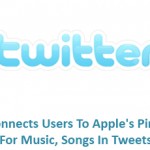 San Francisco — Rumors have been spreading wildly since the popular social networking outfit Facebook has sent out a press invitation for an announcement Nov. 15 in San Francisco to unleash @facebook.com email service in its latest attempt that could make it a serious rival to Gmail.
San Francisco — Rumors have been spreading wildly since the popular social networking outfit Facebook has sent out a press invitation for an announcement Nov. 15 in San Francisco to unleash @facebook.com email service in its latest attempt that could make it a serious rival to Gmail.
Expanding into a totally new domain is usually a risky move for most companies, but a new email service could prove to be a very natural fit for Facebook — though much to the discontent of its latest rival, Google.
According to reports appearing at TechCrunch, the email service is “unofficially referred to internally as its ‘Gmail killer’.” At an special event at 10 a.m. on Monday, Facebook representatives — perhaps CEO Mark Zuckerberg himself — are expected to announce something big in conjunction with the Web 2.0 Summit.

The unfurling of an @facebook.com email service in itself is not a great surprise — the existence of a secret project officially known as Project Titan and unofficially as “Gmail killer” has been swirling since February. Also rumored to be part of the announcement is a deal with Microsoft to incorporate Facebook functionality in Office applications.
It appears most chips have been placed on the bet that Facebook will announce a full-fledged email service and, many tech industry analysts believe that a Facebook email system, coupled with its popular photo and events programs, could become a comprehensive competitor to Gmail.
More importantly, the offering could lead to a fundamental transformation of e-mail. Recently, Yahoo, Google and Microsoft are already competing to re-tool their e-mail services to build them more around people’s social connections.
If, as anticipated, Zuckerberg’s firm does launches an email service it could turn the battle for your inbox on its head, hence a Facebook search engine that prioritizes results around the known preferences of a user’s circle of friends, then the commercial potential of social networking would be greatly extended.
Currently, 361 million people are using Windows Live Hotmail, 273 million are clinging with Yahoo Mail while Gmail currently courts 193 million.
If Facebook’s quest is for Google’s very successful Gmail, it will be just the latest blow across its rival’s deck. The two companies have been lobbing bombs back and forth for years. The battle intensified this week when Google blockaded Facebook users from uploading Gmail data to their pages — then Facebook found a way around the blockade.
So, if Facebook does move forward with plans, it would surely have a tremendous advantage because it owns a vast trove of data about people’s relationships, (there are more than 500 million Facebook users), and it would find it easier to graft e-mail onto its existing social services such as photo-sharing.
Google, which governs more than two-thirds of the search market, and there is little doubt it is taking seriously the threat of Facebook, which has more than 500 million members but lacks business-orientated, revenue-generating services.
Last week, Google announced plans to raise salaries by 10% next year for all employees, interpreted as an effort to staunch the loss of top staff to rivals.
“They do not have an absolute lock on the top talent anymore,” analyst Colin Gillis of BGC Partners told Reuters. “Facebook right now is accumulating top talent and it is harder for Google to retain people.”
The launch of the new service will be made official on Monday.
However, last night, Facebook continued to rebuff reports that its email service will be launched at Monday’s media event where Zuckerberg is scheduled to speak the next day at the conference.
“We do not comment on speculation about future products,” a spokesman said.
Nevertheless, as social networking continues to challenge the power of search on the web, a Facebook e-mail service would be most remarkable not for the size of its network, but for how it could use its web of social connections to transform one of the oldest — and perhaps still the most important — functions of the Internet — the moment has dawned when Facebook decisively threatens Google’s dominance of $24 billion in annual search advertising revenue.


